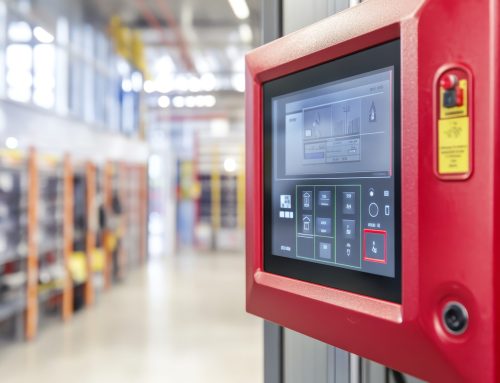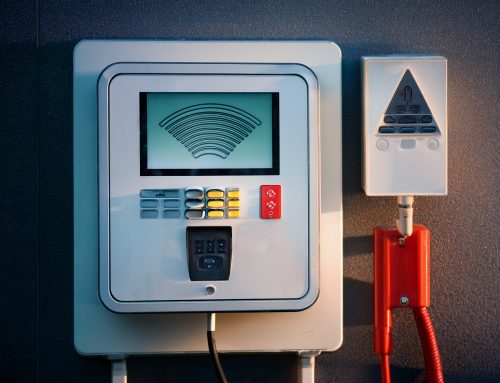Understanding your fire alarm inspection report is critical to maintaining a safe and compliant building. Regular fire alarm inspections ensure your system functions properly to protect lives and property during an emergency. However, the technical language and detailed information in the report can sometimes be overwhelming. This guide aims to break down how to interpret the key components of your inspection report, allowing you to take informed action when needed.
Why Fire Alarm Inspections Matter
Fire alarm systems are your first line of defense against fires. Regular inspections help identify any issues before they become significant problems, ensuring your system will perform as required during an emergency. Inspection reports document the condition of your system and provide a roadmap for any necessary repairs or maintenance to remain compliant with national fire codes, such as those outlined by the National Fire Protection Association (NFPA).
Key Components of a Fire Alarm Inspection Report
Your fire alarm inspection report contains essential information about your system’s condition and performance. Here’s how to break down the key sections:
- System Overview
This section provides basic details about your fire alarm system, including the type of system, its components, and its installation date. Look for information about the manufacturer and model numbers of devices like control panels, smoke detectors, heat detectors, and pull stations. This information is crucial for verifying compatibility during replacements or upgrades.
- Inspection Results
The results section outlines the findings from the inspection. Devices are typically tested for functionality, battery health, and proper operation. Pay attention to the following:
- Pass/fail status: Each device will be listed as either functioning correctly (pass) or needing attention (fail).
- Non-compliant devices: Highlighted issues may include damaged detectors, low battery power, or malfunctioning control panels.
- Recommendations: Inspectors often include suggested actions to correct deficiencies, such as replacing outdated equipment or repairing damaged wiring.
- Event Log
The event log records any alarms, faults, or trouble signals the system experienced since the last inspection. These logs can provide insight into recurring issues or potential vulnerabilities in your system. For instance, frequent trouble signals may indicate a wiring issue or sensor malfunction that needs prompt attention.
- Testing and Maintenance Records
This section shows which tests were performed on each component of your system. For example, smoke detectors may undergo sensitivity testing to ensure they activate at the correct thresholds, while control panels are tested for proper signal transmission. Confirm that all required tests, as outlined by NFPA 72, were completed.
- Deficiencies and Repairs
Any problems identified during the inspection will be listed here, often categorized by severity. Immediate issues, such as non-functional alarms, require urgent attention, while minor issues, like cosmetic damage to devices, may be addressed during routine maintenance. Inspectors may provide a timeline for repairs to ensure compliance.
Common Terms to Understand in Your Report
To interpret your fire alarm inspection report effectively, it’s helpful to understand some common terms:
- Trouble signal: Indicates a system issue that needs to be addressed, such as a low battery or communication failure.
- Supervisory signal: Alerts you to issues with non-alarm components, like sprinkler system monitoring devices.
- Fault: A device or wiring problem that may hinder proper operation.
- Sensitivity range: Ensures that smoke detectors activate at the correct level of smoke concentration.
Taking Action After Reviewing Your Report
Once you’ve reviewed your fire alarm inspection report, it’s important to act on any recommendations to maintain a safe and compliant system. Here are the next steps to consider:
- Address immediate issues: Prioritize urgent repairs flagged in the report. Non-functional alarms, faulty wiring, or low battery power should be corrected immediately to ensure your system is operational.
- Schedule routine maintenance: For less critical deficiencies, create a timeline for completing repairs during routine maintenance visits. This helps prevent minor issues from escalating into major problems.
- Document your actions: Keep a record of all maintenance and repairs completed in response to the report. Documentation demonstrates your commitment to safety and compliance during fire marshal inspections or insurance audits.
- Consult professionals: Work with certified fire alarm technicians to address repairs and ensure compliance with fire safety codes. Professionals can also provide guidance on system upgrades if your current setup no longer meets code requirements.
- Prepare for future inspections: Use the report as a learning tool to improve future inspections. Address recurring issues proactively, test your system regularly, and educate your team on proper usage and monitoring.
Why Proper Interpretation Matters
Interpreting your fire alarm inspection report is more than just checking off a compliance box; it’s about protecting lives and property. By understanding the technical aspects of the report and acting on its findings, you ensure your building is prepared for emergencies and compliant with national fire codes.
With this knowledge, you can confidently manage your fire alarm system, prioritize maintenance, and collaborate effectively with fire safety professionals. In doing so, you’ll create a safer environment for everyone who depends on your building’s fire protection systems.
Fire Systems, Inc. is a family-owned and family-operated fire protection company based in the Atlanta area. As an all-services fire protection company, we are the one and only company you’ll need to protect your entire business. From fire alarm to fire sprinkler, fire suppression to vehicle systems, we truly do it all. For your fire alarm needs, we can install, maintain, repair, inspect, and even monitor your building’s fire alarm system. Working with one company to protect your business from the devastation of fire streamlines the fire protection process for ease and efficiency. Contact Fire Systems, Inc. today at 770-333-7979 or visit our website for more information. We look forward to speaking with you.






